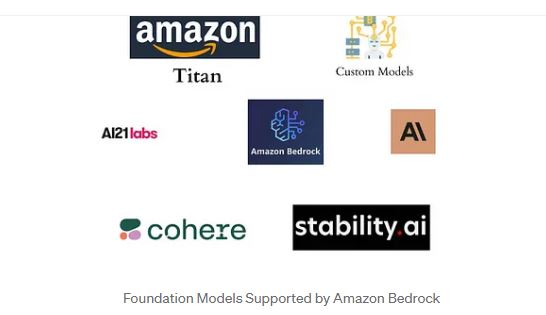AWS Step Functions Express vs. Standard Workflows: Which One Fits Your Use Case?
Author: neptune | 20th-Sep-2023
AWS Step Functions is a fully managed service that allows you to build serverless workflows to coordinate AWS services and applications. Step Functions offers two different workflow types: Express Workflows and Standard Workflows. These workflow types are designed to cater to different use cases and requirements.
In this article, we will explore the key differences between Express and Standard Workflows and when you should choose one over the other.
Express Workflows
What are Express Workflows?
Express Workflows are a new type of AWS Step Functions workflow designed for high-throughput, low-latency use cases. They are optimised for rapid execution and are ideal for scenarios where you need to process a large number of short-duration tasks quickly.
Key Characteristics of Express Workflows
1. Rapid Execution: Express Workflows are designed for fast execution, with the ability to initiate and complete thousands of workflow executions per second.
2. Simplified Billing: Express Workflows offer a simplified pricing model based on the number of state transitions and parallel executions, making it cost-effective for high-throughput workloads.
3. Short-lived: Express Workflows are best suited for workflows that typically complete in seconds or a few minutes. They are not intended for long-running workflows.
4. Limited State Capacity: Express Workflows have a limited state history and no state history retention, which means they are not suitable for workflows that require extensive state tracking.
5. No Callback Support: Express Workflows do not support callback patterns, so they may not be the best choice for workflows that require asynchronous communication with external systems.
Standard Workflows
What are Standard Workflows?
Standard Workflows are the original AWS Step Functions workflow type and offer a broader range of capabilities compared to Express Workflows. They are designed for complex, long-running workflows with features like state history tracking and callback support.
Key Characteristics of Standard Workflows
1. Complex Workflows: Standard Workflows are suitable for workflows that involve complex decision logic, error handling, and long-running tasks. They can also handle workflows with human interaction via AWS Lambda functions.
2. State History: Standard Workflows retain the entire state history of a workflow, allowing you to review and analyse past executions, which can be valuable for debugging and auditing.
3. Callback Support: Standard Workflows support callback patterns, making them a good choice for workflows that require asynchronous communication with external systems.
4. Parallelism Control: Standard Workflows offer fine-grained control over parallelism, allowing you to specify the maximum number of concurrent tasks for each state.
5. Long-lived: Standard Workflows can run for hours, days, or even months, making them suitable for a wide range of use cases, including orchestration of complex business processes.
Choosing Between Express and Standard Workflows
The choice between Express and Standard Workflows depends on your specific requirements and use case:
Choose Express Workflows If:
1. You need to process a high volume of short-duration tasks quickly.
2. Cost-effectiveness and rapid execution are your top priorities.
3. Your workflow is short-lived and doesn't require extensive state tracking.
Choose Standard Workflows If:
1. Your workflow is complex, with branching logic, error handling, or long-running tasks.
2. You need to retain and review the entire state history of workflow executions.
3. Callback support for asynchronous communication is essential.
4. Your workflow can run for an extended period, potentially spanning hours, days, or months.
Conclusion
In summary, AWS Step Functions offers both Express and Standard Workflows to cater to a wide range of use cases. Your choice should be based on your specific workflow requirements, with Express Workflows optimised for speed and cost-effectiveness, while Standard Workflows offer more features and flexibility for complex and long-running workflows. Carefully evaluate your workflow's needs to make the right choice and maximise the benefits of AWS Step Functions.
Remember that AWS services and features may evolve, so always refer to the official AWS documentation and release notes for the most up-to-date information on Step Functions and its capabilities.
#JavaScript #AI #Python #Hackerrank #Motivation #React.js #Interview #Testing #SQL #Selenium #IT #LeetCode #Machine learning #Problem Solving #AWS #API #Java #GPT #TCS #Algorithms #Certifications #Github #Projects #Jobs #Django #Microservice #Node.js #Google #Story #Pip #Data Science #Postman #Health #Twitter #Elon Musk #ML
 Generative AI Made Easy: Explore Top 7 AWS Courses
Generative AI Made Easy: Explore Top 7 AWS CoursesAuthor: neptune | 05th-Aug-2023
#AI #AWS #Certifications
These top 7 Generative AI courses by AWS offer a pathway to explore and master the fascinating world of Generative AI...
 Roadmap to AWS Certified Solutions Architect – Associate (SAA-C03)
Roadmap to AWS Certified Solutions Architect – Associate (SAA-C03)Author: neptune | 04th-Jul-2023
#AWS #Certifications
As technology continues to evolve, the demand for skilled professionals in cloud computing and architecture has seen significant growth...
 Mastering AWS Step Functions: A Visual Workflow Solution
Mastering AWS Step Functions: A Visual Workflow SolutionAuthor: neptune | 07th-Aug-2023
#AWS
AWS Step Functions: Simplify, visualize, and automate serverless workflows with seamless AWS service integration and built-in error handling for reliable applications...
 How to Invoke Lambda from Local using Selenium Java Framework
How to Invoke Lambda from Local using Selenium Java FrameworkAuthor: neptune | 24th-Apr-2023
#AWS
To invoke AWS Lambda from local Selenium Java framework: create Lambda, update dependencies, use SDK, and grab access keys...
 Roadmap to AWS Cloud Architect Certification
Roadmap to AWS Cloud Architect CertificationAuthor: neptune | 28th-Mar-2023
#AWS
The demand for cloud computing has been rapidly growing in recent years, and as a result, there is a high demand for professionals with AWS cloud computing skills...
 AWS Certified Developer – Associate | Roadmap
AWS Certified Developer – Associate | RoadmapAuthor: neptune | 26th-Jul-2023
#AWS #Certifications
The AWS Certified Developer – Associate (DVA-C01) exam is intended for individuals who perform a developer role...
 How to Train Foundation Models in Amazon Bedrock
How to Train Foundation Models in Amazon BedrockAuthor: neptune | 14th-Jul-2025
#AI #AWS
Amazon Bedrock simplifies the customization of foundation models by offering multiple techniques like fine-tuning, RAG, prompt engineering, and few-shot learning...
 Different Types of Foundation Models Available in Amazon Bedrock
Different Types of Foundation Models Available in Amazon BedrockAuthor: neptune | 17th-Jul-2025
#AI #AWS
Amazon Bedrock offers a wide selection of foundation models from AI21 Labs, Anthropic, Cohere, Meta, Stability AI, and Amazon Titan...
View More